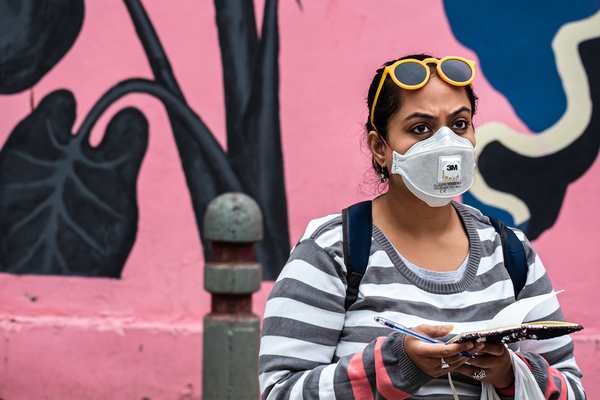John Hopkins University is offering a free COVID-19 Contact Tracing Course as a way to earn a certificate to become employed as a contact tracer.
I took this class in May, and the class was taught by Emily Gurley, PhD, an Associate Scientist in the Department of Epidemiology at John Hopkins Bloomberg School of Public Health. This is the fifth and final installment in the series addressing my observations of this training.
Some key takeaways from my experience include:
- There was no opportunity during the training--whether by email or messaging service--to ask questions or clarify information.
- The Privacy, Ethics, and Confidentiality training was very vague.
- During case call scenarios (the contact tracer is shown calling infected persons), the training only shows people who are compliant to questions and requests of quarantine. Individuals were asked to read prior texts to the contact tracer to find out who they may have talked to or who they may have seen over a few days time. They were also questioned repeatedly to make sure they are giving as much information as possible of their contacts.
- It was not addressed what would happen if someone is uncooperative, or saying they will not quarantine after being contacted and asked to do so, or if a person simply hangs up. Gurley said on numerous occasions that a contact tracer will “follow local protocol.” What happens if you cannot get ahold of someone who is infected or any of their contacts? Does someone show up at their home?
- Gurley does not address what type of resources are given to people who are asked to quarantine. What happens if someone has children or taking care of an elderly parent? Do they qualify for unemployment if they are not working?
A consistent theme throughout the training was “if we can limit contact between people who are infected and others, we can limit opportunities for the virus to be transmitted.”
How long can this go on with COVID-19? How long will contact tracing take place during any virus outbreak? What is the future of contact tracing?
Gurley stated, “The pandemic is ongoing…”
How will a contact tracer’s role evolve with the implementation of new technology, which is heading towards digitally tracking individuals? What will be considered a violation of our privacy, confidentiality, freedoms, and rights?
I think this is a serious fault of the training, as this is not addressed for contact tracers to think about prior to taking employment.
This is the fifth and final part of this series. Click here for Part 1, here for Part 2, here for Part 3, and here for Part 4.
Susan Thiel is a Content Writer for Convention of States Nevada. She can be reached at susan.thiel@cosaction.com


